Brad’s Update
The Morgridge Institute is exploring uncharted scientific territory to discover tomorrow’s cures.
Basic science, the core of what we do, is all about the work. It’s a fearless commitment to go where the science takes us. It is rigorous, determined and made stronger by a community of scientists and supporters like you, our Partners in Science.
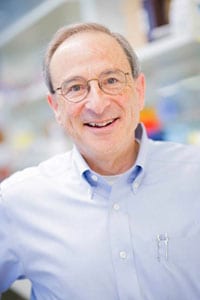
Brad Schwartz
As a member of Partners in Science, your philanthropic support provides critical resources: You make it possible to study promising areas of biomedicine that can lead to important discoveries and improve human health.
In this report, you will read about new research to tackle a deadly tropical disease and efforts to stop the spread of viruses like Zika, polio, dengue, SARS and hepatitis C. You’ll also see how a community of supporters rallied to fund the Rural Summer Science Camp, an annual summer event that gives rural Wisconsin high school students and their teachers a hands-on experience exploring science.
But, there is always more scientific work ahead. Preventing and curing disease, stopping the spread of viruses, and improving the quality of human life won’t happen tomorrow, next year or maybe even in ten years. It will take dedication, curiosity and integrity. We are committed because of your support.
Thank you for supporting the Morgridge Institute. I can’t thank you enough for the trust you’ve placed in us.
Brad Schwartz, M.D.
CEO, Morgridge Institute for Research
P.S. I am so thankful for your support as a Partner in Science. If you have any feedback about this new report, please email me at giving@morgridge.org.
Thank you for being our partner
As a Partner in Science, you are helping explore uncharted scientific territory to discover tomorrow’s cures. The partner community has doubled in one year. We can’t thank you enough for your commitment to scientific discovery and outreach!
At the Morgridge Institute for Research, we explore uncharted research to go where the science takes us. By asking the right questions and following the highest standards of quality research, we will improve human health.
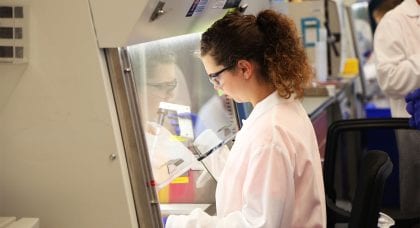
Stem cell summer camp inspiring early careers in science and technology
Every summer since 2007, students from some of the smallest high schools in Wisconsin descend on the Morgridge Institute for Research for the Morgridge Rural Summer Science Camp. Now, 12 years into the camp, organizers are finding it has been a difference-maker.
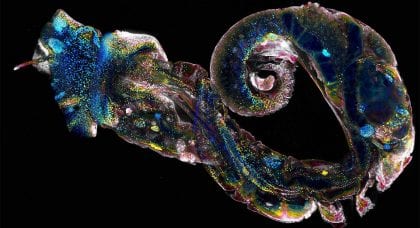
Finding a weak link in the frightful parasite Schistosoma
The parasitic disease schistosomiasis is one of the developing world’s worst public health scourges, affecting hundreds of millions of people, yet only a single, limited treatment exists to combat the disease. Researchers are searching for potential new targets by probing the cellular and developmental biology of the parasitic flatworm Schistosoma.
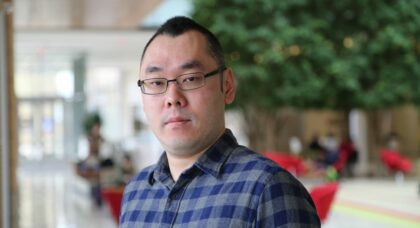
An Achilles heel discovered in viruses could fuel new antiviral approaches
Scientists at the Morgridge Institute for Research have discovered a promising new target to fight a class of viruses responsible for health threats such as Zika, polio, dengue, SARS and hepatitis C.
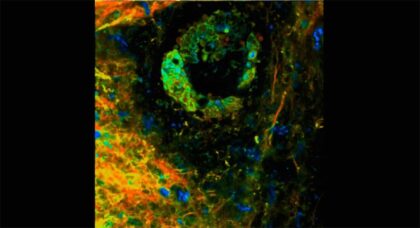
Pushing toward personalized pancreatic cancer treatments
Melissa Skala and Paul Campagnola, a professor of biomedical engineering at UW–Madison, hope to make inroads toward improved drug therapies through a two-year National Institutes of Health Exploratory/Developmental Research Grant.
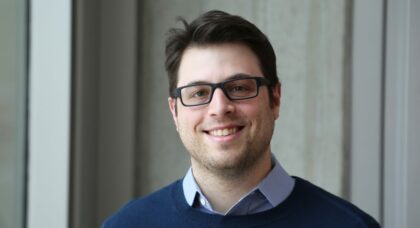
Metabolism investigator Jason Cantor joins Morgridge Institute, UW–Madison
Jason Cantor could describe himself as an engineer, biologist and biochemist, but don’t try to put his expertise into one box. Cantor, a scientist exploring the environmental influences on cancer cell metabolism, is launching a new lab in the Metabolism Theme at the Morgridge Institute and joining the UW–Madison departments of biochemistry and biomedical engineering.
